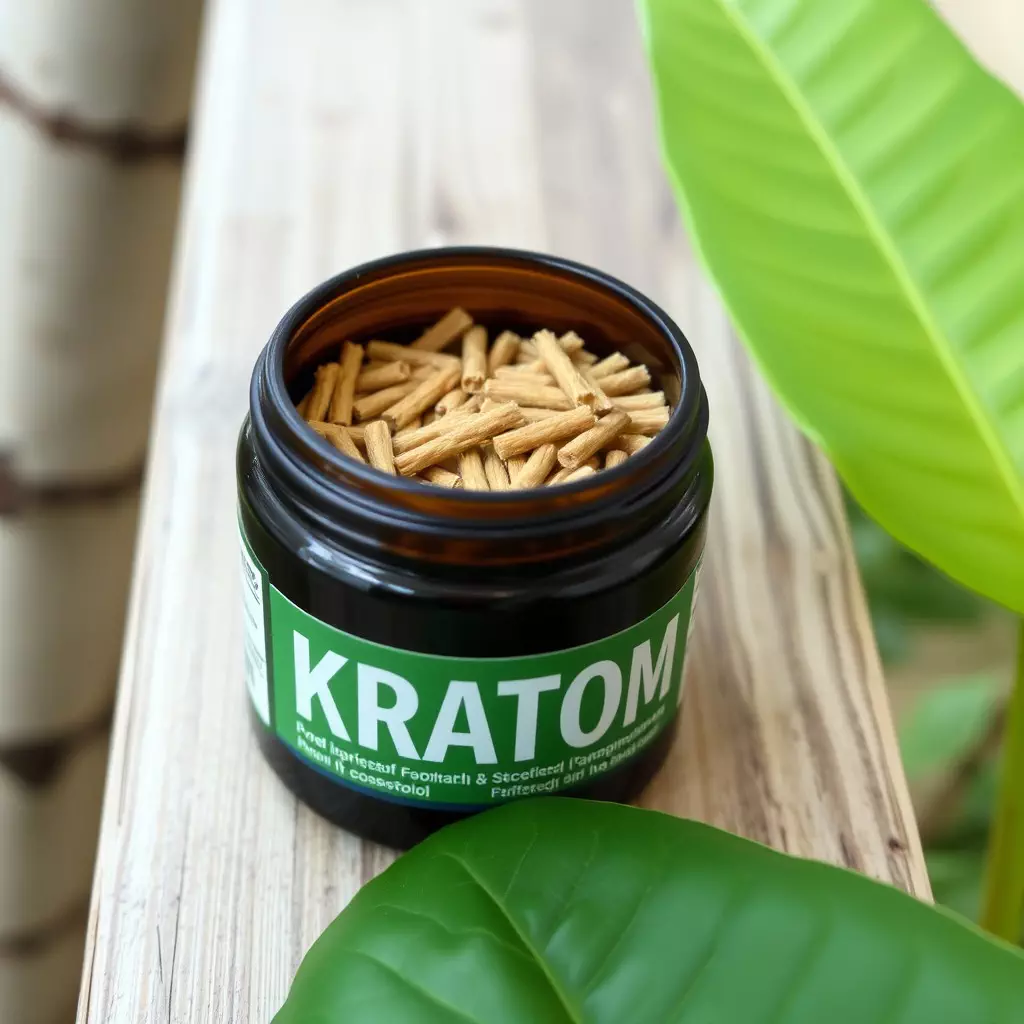Kratom, derived from the Mitragyna speciosa plant, has gained attention as a potential natural adjunct for treating depression and stress-related disorders, particularly in trauma survivors. Its active alkaloids, mitragynine and 7-hydroxymitragynine, may offer mood-enhancing benefits by interacting with the brain's opioid receptors, potentially regulating the body's stress response. Current research suggests that kratom could influence monoamine neurotransmitters, which might help in managing depression symptoms. However, its effects vary among individuals, underscoring the need for careful clinical study to assess both its benefits and risks in a therapeutic context. As a complementary therapy, kratom may harmonize the nervous system's balance and alleviate anxiety and mood swings associated with trauma. It is crucial to consider its integration as part of a comprehensive treatment strategy that includes evidence-based interventions like psychotherapy and medication, all personalized to the patient's needs, to effectively treat depression with kratom.
Trauma and stress response regulation are critical areas of psychological health, deeply intertwined with the emergent role of kratom in depression treatment. This article delves into the multifaceted nature of trauma’s impact on the body and mind, exploring how kratom may offer a biochemical avenue for mitigating these effects. We will examine the science behind kratom’s mechanisms, its potential integration into holistic therapeutic strategies, and its implications for managing stress-related disorders. The discussion promises to shed light on the promising prospects of kratom as an adjunctive treatment option within the realm of depression care.
- Unraveling the Complexities of Trauma and Stress Response Regulation Through Kratom's Role in Depression Treatment
- The Biochemical Mechanism of Kratom: Analyzing Its Impact on the Body's Response to Traumatic Events
- Integrating Kratom into a Holistic Approach for Managing Trauma and Stress-Related Disorders
Unraveling the Complexities of Trauma and Stress Response Regulation Through Kratom's Role in Depression Treatment

Trauma and stress can significantly disrupt the body’s regulatory systems, often leading to long-term psychological conditions like depression. Kratom, a tropical evergreen tree native to Southeast Asia, has garnered attention in the realm of natural remedies for depression treatment. Its leaves contain alkaloids that may influence mood and provide relief from depressive symptoms. The mitigating effects of kratom on stress response systems could offer a novel pathway for managing trauma-induced conditions. Studies have suggested that kratom’s active compounds, such as mitragynine and 7-hydroxymitragynine, interact with the brain’s opioid receptors, potentially offering an alternative to conventional antidepressants. This interaction may help regulate the hypothalamic-pituitary-adrenal (HPA) axis, which is often dysregulated in trauma survivors. By addressing the underlying neurobiological mechanisms associated with depression, kratom holds promise as a complementary treatment option for individuals coping with the aftermath of traumatic experiences. However, it is crucial to approach the use of kratom with caution, as its effects can be complex and variable between individuals. Ongoing research aims to elucidate the full potential and risks associated with kratom as a depression treatment, particularly in the context of trauma and stress response regulation.
The Biochemical Mechanism of Kratom: Analyzing Its Impact on the Body's Response to Traumatic Events

Kratom, a plant native to Southeast Asia, has garnered attention in discussions surrounding depression treatment and the modulation of stress response due to its complex biochemical mechanisms. The leaves of kratom contain alkaloids, primarily mitragynine and 7-hydroxymitragynine, which interact with various neurotransmitter systems within the body. Upon ingestion, these alkaloids can influence the brain’s opioid receptors, leading to analgesic effects that may help alleviate the physical manifestations of stress and trauma. This interaction is particularly significant as it can potentially mitigate symptoms associated with traumatic events by modulating the body’s stress response system, which includes the hypothalamic-pituitary-adrenal (HPA) axis. The activation of opioid receptors can counteract the overactivation of the sympathetic nervous system often seen in individuals experiencing trauma, promoting a return to homeostasis and reducing the heightened stress response that contributes to the development or exacerbation of depressive states.
Furthermore, kratom’s influence on monoamine neurotransmitters such as serotonin, norepinephrine, and dopamine is also noteworthy in the context of trauma and stress response regulation. By affecting these key neurotransmitters, kratom may offer a multifaceted approach to depression treatment, addressing both the emotional and physical aspects of traumatic stress. The nuanced impact of kratom on the body’s biochemical processes presents a potential avenue for therapeutic intervention, though it is crucial to approach its use with caution due to the complexity of individual responses to this substance and the need for further clinical research to elucidate its efficacy and safety in treating depression and regulating the body’s response to trauma.
Integrating Kratom into a Holistic Approach for Managing Trauma and Stress-Related Disorders

Kratom, a botanical derivative from the leaves of Mitragyna speciosa, has garnered attention in the realm of alternative treatments for depression and stress-related disorders, particularly in the context of managing trauma. Its efficacy as a depression treatment with kratom stems from its unique alkaloid profile that may influence neurotransmitter systems involved in mood regulation. Clinical studies suggest that kratom can modulate the body’s stress response by engaging with opioid receptors, thereby potentially offering relief for individuals experiencing chronic stress or trauma-induced conditions. The holistic approach to incorporating kratom involves a careful consideration of its effects on the brain and body, aiming to balance the parasympathetic and sympathetic nervous system responses that are often dysregulated in trauma survivors. This balanced approach can help alleviate symptoms such as anxiety, depression, and mood swings, which are common in those with stress-related disorders. However, it is crucial to approach the use of kratom with caution, as its inclusion in a holistic treatment plan should be complementary to evidence-based practices and under the guidance of a healthcare professional. The integration of kratom must be part of a comprehensive regimen that may include psychotherapy, medication, lifestyle changes, and other therapeutic modalities tailored to the individual’s unique needs and circumstances. This multi-faceted strategy is key to addressing the complex nature of trauma and its associated stress responses effectively.
In conclusion, the multifaceted nature of trauma and stress response regulation presents significant challenges in finding effective treatment modalities. The exploration of kratom’s role in depression treatment has shed light on its potential biochemical mechanisms, which may offer a novel avenue for managing the effects of traumatic events on the body and mind. By understanding how kratom interacts with neurotransmitter systems, healthcare providers can consider it as part of a holistic approach to treating trauma and stress-related disorders. Further research is imperative to elucidate the full spectrum of its efficacy and safety profile in depression treatment with kratom. Ultimately, this emerging therapeutic option holds promise for those affected by the profound impact of trauma, offering a path toward recovery and improved quality of life.






